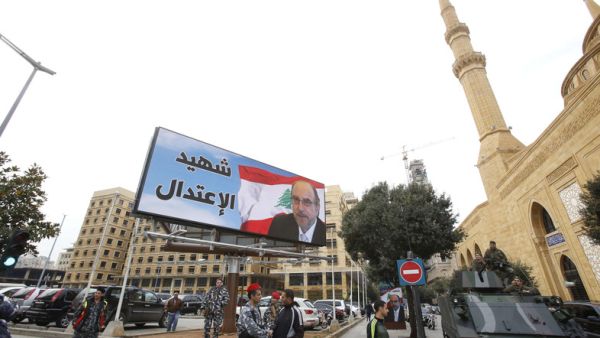Irrespective of the strife and conflict they have been through, most Lebanese people desperately want to believe the famed signer Fairuz when she sings: Even in your madness I love you (Lebanon)/because your love /gathers us together /when we are dispersed. However, following the bombing of Mohamad Chatah on December 27, one wonders if their faith in a unified Lebanon will survive yet another round of violence.
In a country sharply divided by sectarian conflict, Chatah was viewed by many as a moderate voice and a potential candidate for the role of the Prime Minister. (In Lebanon, the President is always a Christian, the Prime Minister a Sunni and the Speaker a Shia Muslim.)
Chatah was also a close friend and adviser to Saad Hariri, son of former Lebanese President Rafiq Hariri, whose 2005 assassination set off the March 14 coalition. The killing also led to the formation of a Special Tribunal for Lebanon (STL), which was tasked with investigating the Hariri assassination (to date, the STL has found five members of Hezbollah guilty of playing a role in the assassination; the organization has so far refused to turn in any of the accused).
Following his assassination, the Wall Street Journal published an open letter from Mr. Chatah to the recently elected Iranian moderate President Hassan Rouhani. In the letter, Chatah asked for Iran to tone down its support for Hezbollah. He asked for the end of armed participation of Lebanese parties in all external conflicts particularly Syria. He requested Iran to fall in line with the Baabda declaration which seeks to protect and neutralize Lebanon from regional and international conflicts and alliances.
Hezbollah’s role in the Syrian conflict was clearly on Chatah’s mind. In his final (and now ominous sounding) message, he tweeted: #Hezbollah is pressing hard to be granted similar powers in security & foreign policy matters that Syria exercised in Lebanon for 15 yrs.
Hezbollah’s role in Lebanese politics has long been a source of tension within the country. However, Chatah’s letter suggests that he was prepared to make a break with the past when it came to finding a solution. Rather than following a path of conflict, he was prepared to follow a path of dialogue and mediation.
With Chatah’s killing, the possibility of a peaceful resolution has been dealt a serious blow. Today, there is no other figure on the Lebanese political scene with the stature and credibility to bring several battling factions to the negotiating table.
Further complicating the path to a peaceful resolution is Lebanon’s constitutional power vacuum. The Lebanese Parliament’s term ended nine months ago. The country has been without a cabinet for nine months and the President’s term is set to end in May. In comparison to the gridlocked political system in Lebanon, the members of the contentious US House of Congress appear like drinking buddies at one giant party.
Lebanon’s President Michel Sleiman recognized the calming effect of Chatah’s moderation of Lebanese politics when he denounced this “terrorist crime that claimed the life of former minister Mohammad Shatah, this moderate, pro-dialog figure.”
That said, actions speak louder than words.
And Sleiman’s recent actions are loud enough to drown out the sentiment attached to every word in Chatah’s letter. The President has signed a deal with Saudi Arabia, through which the oil rich Kingdom will provide $3 billion dollars in military aid to Lebanon.
If one views the Syrian war through the prism of a larger regional conflict between Saudi Arabia and Iran, how will the deal help preserve Lebanon's independence in terms of directing its own political future – a key point raised in Chatah’s final letter?
If the history of Lebanon has taught us one thing, it’s that a military focused approach has resulted in more conflict – not less. If there is more fighting, then the December 27 bomb will only be one of many more to follow. This is scenario that the country can ill afford. In recent months, tourism revenue, which is responsible for 13% of the country’s GDP has plummeted sharply. In addition Beirut’s renowned international university system that includes institutions such as the American University of Beirut and the Université Saint-Joseph de Beyrouth will find themselves bereft of both international students and funding.
Chatah’s final letter to one of Lebanon’s oldest enemies made an important point: it would be wise for Lebanon to move away from any path that would steer it towards further conflict. The attention of the country’s leadership should be focused on healing old wounds through potential upcoming conversations at venues such as the Geneva II conference and the Rafiq Hariri trial. Else, the unthinkable might happen. Fairuz’s songs might no longer touch a chord in the hearts of her fellow Lebanese.








